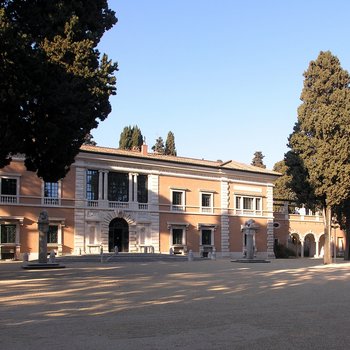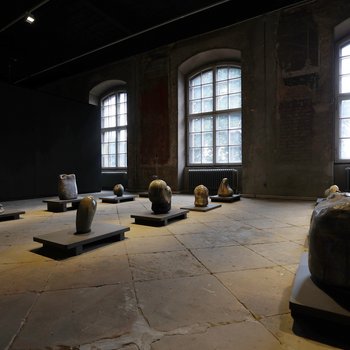Charlotte, 2001
At the beginning of November, they’re living in a hazy state of threat. There are deaths after two waves of letters laced with anthrax. In New York, another plane crashes and the airports are evacuated, tunnels and bridges closed, though it’s soon clear it was just the co-pilot reacting wrongly to turbulence. The Bundestag votes to bring Germany into the war in Afghanistan, the chancellor asks for a vote of confidence – a phrase that sounds to Charlotte more like a private context than a political one. It’s as if something from her childhood had returned: flags are important again, suddenly everywhere.
Everything goes on, though everything is over. She’s no longer the same person, but she doesn’t yet know who to be instead. She hasn’t found a new job, has barely looked; she doesn’t know what to apply for. At least Simon got his guest appearance; she watches him learning his lines and doing more sport. He’s started to do Tai Chi.
“We’ve got to party,” Simon’s new friends say. “You have to party when everything’s going down the pan. That’s active resistance against the state of the world.”
Greta, 2010
“Are you getting a divorce, then?”
“We can’t get a divorce, Greta, we’re not married.”
Karl stares at his bread roll, only one bite taken out of it and his face already covered in raspberry jam. Family is war.
“I don’t get it,” says Greta.
Simon and Charlotte exchange another glance, and then they explain it all over again.
It’s all very simple, really. Why on earth doesn’t she understand? There are two adults, and two children. It all works fine. If the adults don’t get on any more, they have to stay out of each other’s way. Then again, there’s not much money. But there’s a house that’s big enough, as big as two flats, a house where everyone has their own room. Shouldn’t that be enough to stay out of each other’s way?
“Please, Greta,” Simon says. He puts his hand out over the table, then takes it back and holds out the bread basket to her instead.
Because of course it’s clear who gets which child. Greta’s her daddy’s girl, always has been, and Karl is Charlotte’s baby.
“Won’t I have a brother any more?” she asks. “And how are we supposed to divide the house up, how will that work?”
Karl, 2019
“Is everything OK? What are you doing here in the middle of the night?”
“Nothing’s OK.”
Miraculously, she doesn’t ask straight questions away; she lets him have the time he needs. As she slides to and fro on her chair, he sees separate parts of her: a slim raised hand, the hollow of her throat, the wide neckline of her nightshirt, a rounded cheek.
“I was born at the wrong time. It’s all messed up. When you were my age … even later … you could still have saved the world. Anyone could have, all on their own … Just not driving a car would have been enough … They hadn’t won yet!”
“Who?”
“All the bastards! The capitalists! The president of America buying up a Scottish nature reserve just to play golf. Or …”
She seems to be listening to him, she is listening to him, and he just doesn’t stop.
“… or Canadians who want to wash gold dust out of the earth in Greece. They crowd thirty mines onto one peninsula … it looks like the moon there, nothing left, just poisoned ground. I mean … Mum!”
When he realises what he’s called her he goes on speaking, faster.
“Why didn’t you save the world?”
Simon, 2020
Later, as we took the same route back I’d just driven to the station, I felt perfectly calm. Now and then I looked at Karl from the side; he was breathing evenly in and out. Outside, I saw the same gangrened concrete tower blocks, the same desolate scribbles, the same fat men with their mouths turned down in true Saxon history-played-tricks-on-me manner – but I saw them differently to on the way there. I thought of the tower-block-sized mistakes Charlotte and I had made, of the messed-up years behind us, and I had to admit: It hadn’t been Dresden’s fault. The city had nothing to do with it.
What is home anyway? An idea, and the centre of that idea is not at all the place where you are. Home has to be where the family is – if you have one. Otherwise, wouldn’t all be lost, even in paradise?
We want to do better, from now on.
I hope it’s not too late for the three of us who are left.
© Schöffling & Co.
Also of interest:
Villa Massimo – The German Academy in Rome
Every year, the German Academy Rome Villa Massimo awards the Rome Prize to nine selected artists, enabling them to spend ten months in Rome. The artists' works from the last two years are on display this year in the exhibition "Eppur Si Muove - Und sie bewegt sich doch" ("And Yet She Moves") at the Japanisches Palais. Angela Windholz introduces the house and its program.

A Tale of Slumbering Stones
The firing of clay is one of the earliest technologies discovered or invented by man. A variety of work featuring ceramics as well as film and images created by Rome Prize winner Benedikt Hipp will be among the exhibits on display as part of the new exhibition “Eppur Si Muove – Und sie bewegt sich doch” at the Japanisches Palais (Japanese Palace), which happens to be the original location of the Porzellansammlung. In the following, Hipp offers insights into how he himself experiences and observes the creation of his ceramics – from collecting clay to the fired object.
